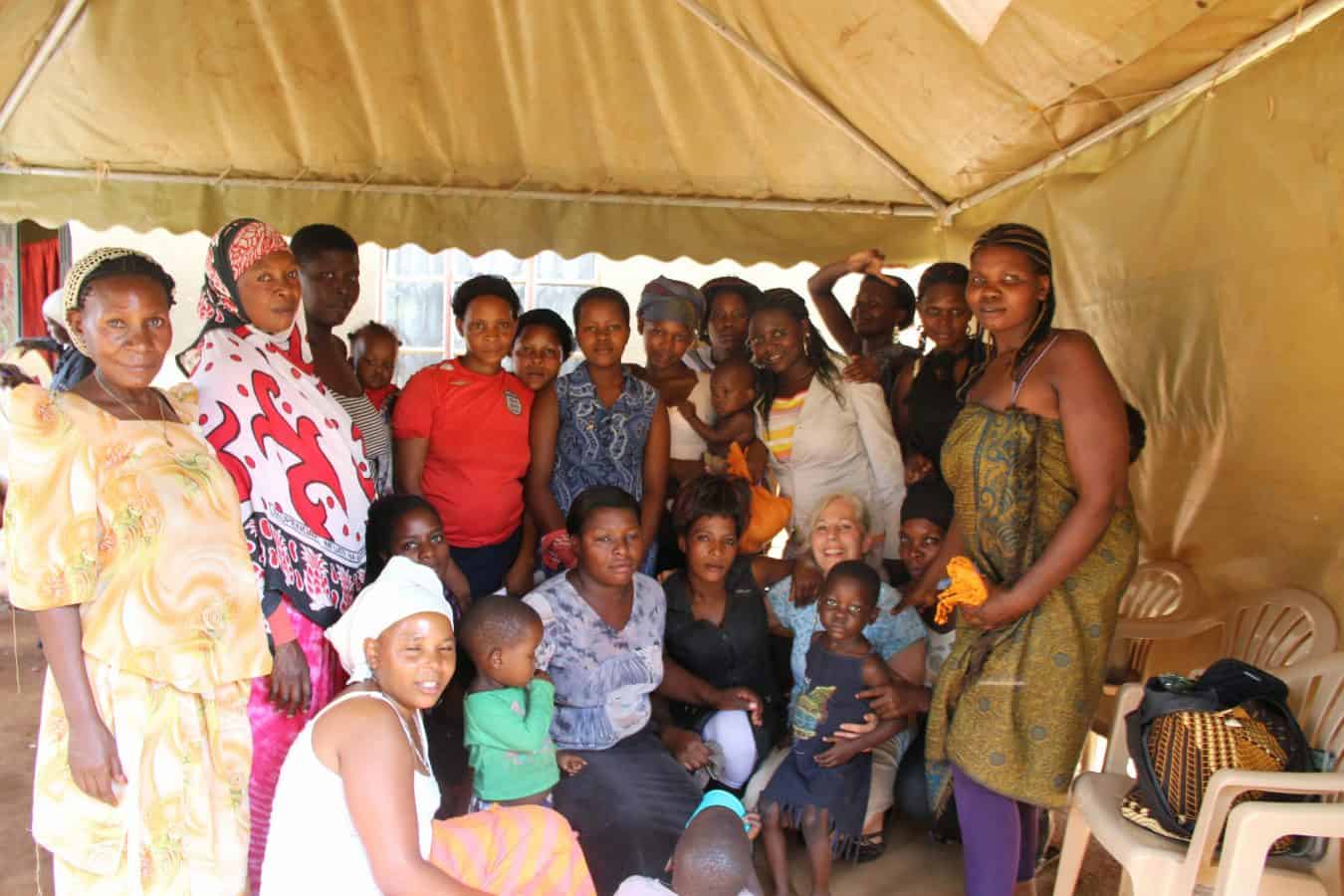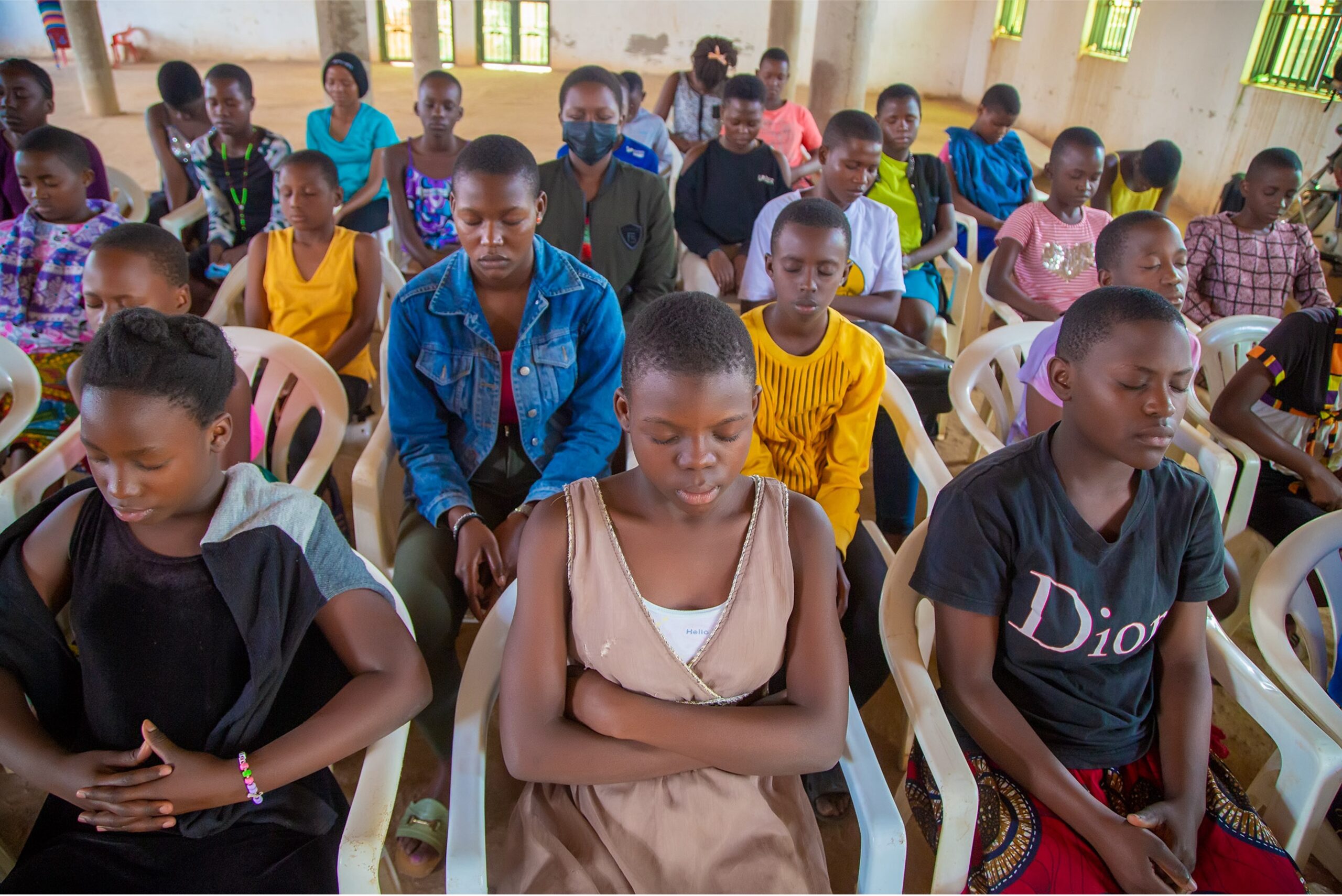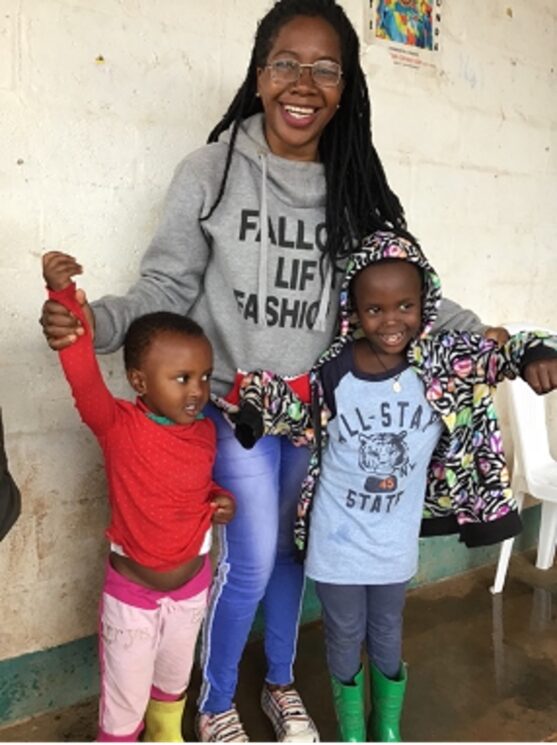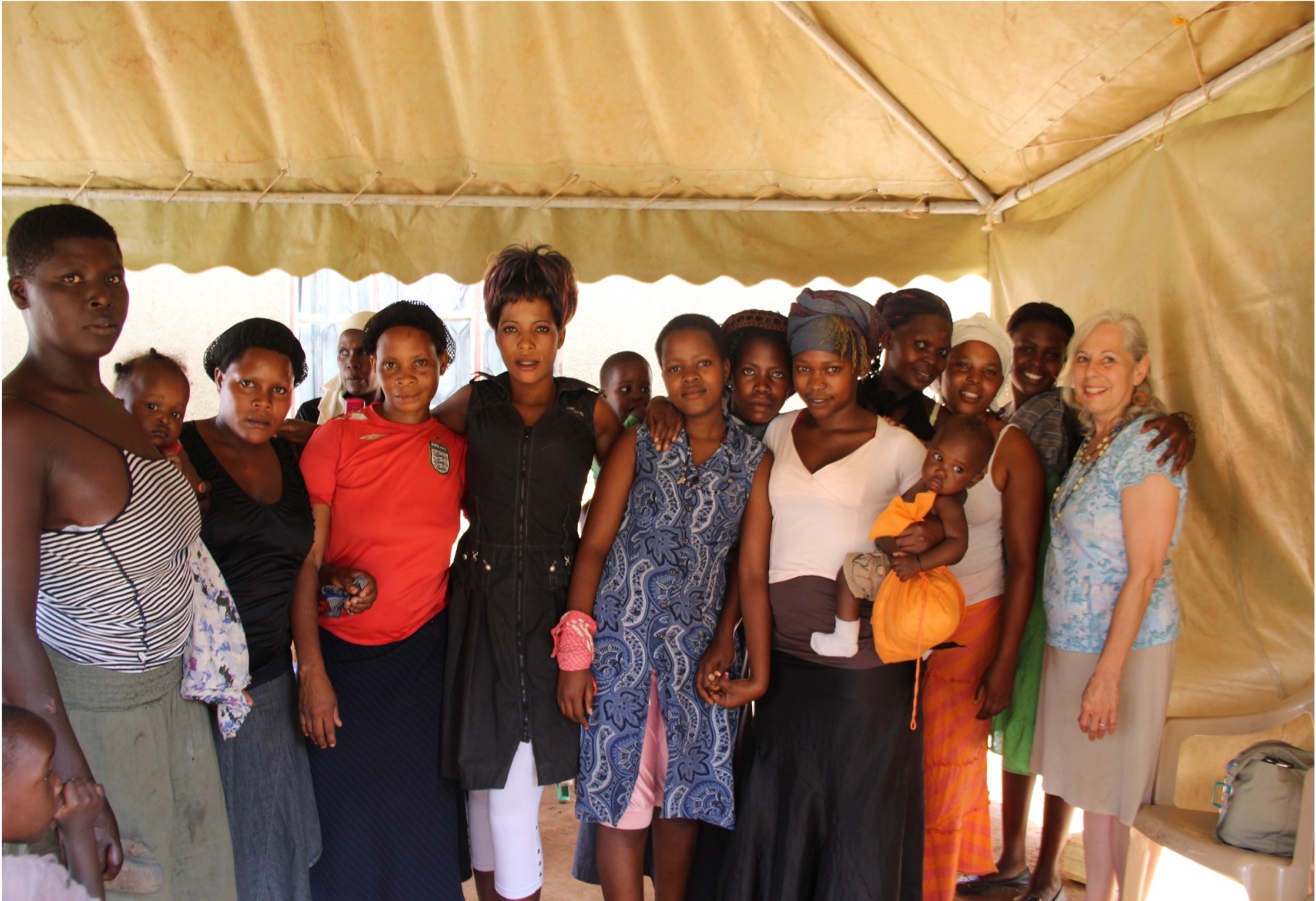
MIU researcher Leslee Goldstein and team publish study on TM empowering women and girls in Uganda
In a widely-publicized peer-reviewed study, MIU researcher Leslee Goldstein and her team demonstrated the power of the Transcendental Meditation technique to transform the lives of underserved women and girls living in urban slums in Uganda.
The study, published in the journal Health Care for Women International, looked at 130 female youth ranging in age from 13 to 26 living in poverty in Kampala, Uganda’s capital and largest city, with four million people.
“They have limited access to education,” Goldstein said. “Many are illiterate. They face economic instability, domestic and community violence, food and shelter insecurity, gender discrimination, and employment challenges. As a result, they have low self-esteem, they can’t cope, and they’re very tired. They feel hopeless.”
After just five months of TM practice, the subjects showed statistically significant increases in self-esteem (a person’s view of their self-worth), self-efficacy (one’s belief in their capacity to complete a task or achieve a goal), and gratitude. They also showed significantly reduced tiredness, alcohol use, worry, and fatigue. The changes most noticed by the participants, their families, and members of the community were improved self-esteem and reduced excessive alcohol use.
At eight months, responding to a short-answer questionnaire, the participants described improved physical health, decreased stress and anxiety, and improved relationships with family members and neighbors.

“I feel much stronger and more confident”
“I have improved in health and mentally, and even other people notice the change in me,” said a 16-year-old subject. “After meditating I feel free, and my ability to do work has increased. I have improved in class performance and my relationships with others have also improved. I can control myself better now.”

“Everything felt so hard before,” a 19-year-old wrote. “I have six sisters and they all have kids. I was tired of struggling on my own, so I, too, decided to get pregnant and go into marriage. I had given up on my goals but that was until I learned TM. Meditation made me strong. It empowered me to realize I can push on in the face of adversity.”
Empowerment from Within
The study authors introduced a new theory of empowerment that they call Empowerment from Within.

“Empowerment cannot be bestowed by others but always must come from within,” the authors write. “Giving a woman food, a sewing machine, or money does not empower a woman. Such gifts may make western donors feel good about themselves, but do not necessarily empower the recipients.”
“Although programs for economic empowerment are critical for women living in poverty,” they write, “Empowerment that transforms women’s lives and society must come from a deep core level within the individual.”
Through the process of transcending, the authors note, TM practice enables individuals to find peace, calm, and resilience deep within — the foundation of personal growth and empowerment.
“Often, young women in developing countries who face similar stressful situations are marginalized as a population and can’t find a way out without assistance and tools to help them,” said Daniela Romagnoli, PhD, from Penn State University and one of the coauthors. “This study brings attention to their plight and offers an evidence-based technique.”
Widespread coverage
The study has received broad media coverage, with stories in News Medical Life Sciences (one of the world’s leading open-access medical and life science hubs), ScienMag science magazine, The Black Examiner (Uganda and East Africa), Bioengineer.org (featuring the latest biotechnology news from around the world), Mirage News (international news publication), ReachMD medical news, Read from Medscape, Global Women’s Health Academy, Head Topics (United Kingdom), and more.
Coauthors of the study are Andra Marie Smith (School of Psychology, University of Ottawa, Ottawa, Canada), Daniela Romagnoli (University Workforce Education and Development, College of Education, The Pennsylvania State University, University Park, Pennsylvania), and Elissa Katergi (School of Psychology, University of Ottawa).
The research was conducted in collaboration with two other organizations, the African Women and Girls Organization for Total Knowledge (AWAGO) and the Empowered Women community organization.
Funding for this research study was provided by the Rona and Jeffrey Abramson Foundation.
This study on women and girls follows a similar study by Goldstein published in the same journal in 2018 — the first controlled study to demonstrate the effect of TM practice in the daily lives of mothers living in impoverished conditions. The study found significant improvements in self-efficacy, perceived stress, and mental and physical well-being, along with improved health, improved relationships, and increased employment rates. Study coauthors were MIU researchers Sanford Nidich, Rachel Goodman, and David Goodman.

